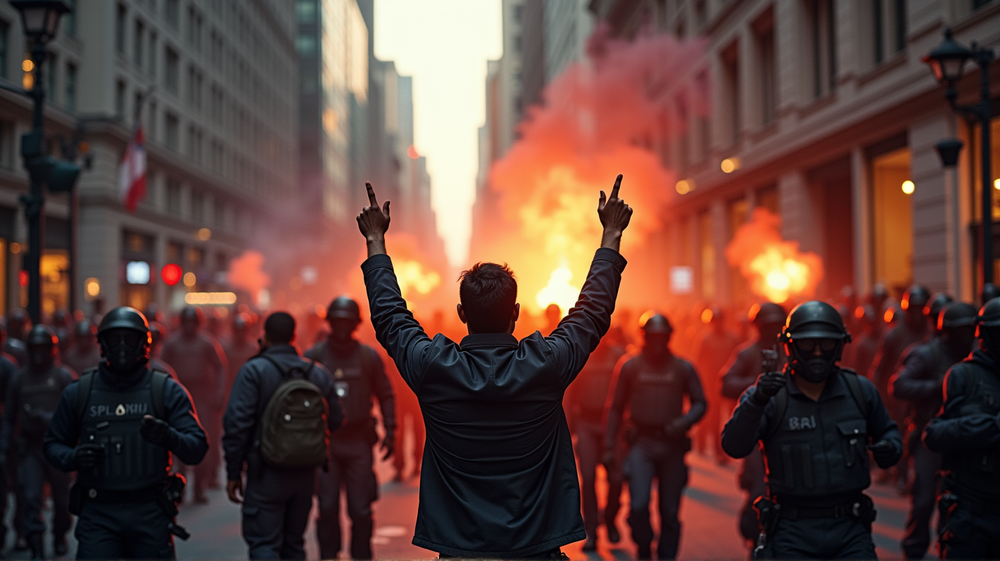In a dramatic twist of diplomatic relations, Colombian President Gustavo Petro finds himself at odds with the United States after taking a bold stand during a protest in New York. As tensions rise over international politics, Petro’s actions have resulted in the U.S. State Department revoking his visa — a move that has brought to light the intricacies and fragilities of U.S.-Colombia relations. According to Scripps News, Petro’s outspoken defiance against President Donald Trump’s orders has stirred a political storm between the two nations.
Standing Firm Amid the Storm
During his visit to New York for the U.N. General Assembly, President Petro participated in a heated protest over the ongoing conflict in Gaza. Addressing a crowd, Petro urged U.S. soldiers to reconsider their orders under President Trump, imploring them not to point “rifles against humanity”. His calls to action resonated with many, yet also drew significant backlash, prompting an immediate response from the U.S. government.
Consequences and Repercussions
The decision to revoke Petro’s visa marks a significant diplomatic gesture. It highlights the fine line between expressing political opinions and maintaining international relations. Petro, unperturbed by the visa revocation, retorted on social media, suggesting that his European citizenship could circumvent barriers posed by his U.S. visa status. He emphasized his right to free speech as a representative at the U.N.
Historical Tensions and Current Challenges
This is not the first time Petro, Colombia’s first leftist president, has encountered friction with Washington. His administration has frequently clashed with Trump’s policies, especially regarding drug trafficking efforts. Petro’s controversial approach, questioning U.S. operations in the Caribbean and resisting deportation cooperation, underscores a broader discontent with U.S. policy in Latin America.
A Strained Alliance
Despite their longstanding alliance, recent actions have placed a strain on U.S.-Colombia relations. The failure to cooperate fully on anti-narcotics operations was a point of contention, leading to diplomatic exchanges that emphasized Colombia’s sacrifices in the drug war.
Looking Ahead: Bridging the Divide
As both nations navigate these diplomatic waters, the need for dialogue and mutual respect becomes paramount. Petro’s defiance reflects a growing wave of assertiveness from Latin American leaders unwilling to concede lightly to external pressures. This event has spotlighted the potential for an evolving narrative between the U.S. and one of its key allies in the region.
Petro’s stand at the New York protest and the subsequent visa revocation underline a critical moment in global diplomacy, raising questions about the future of U.S. foreign relations and the impact of political boldness in shaping new alliances.












